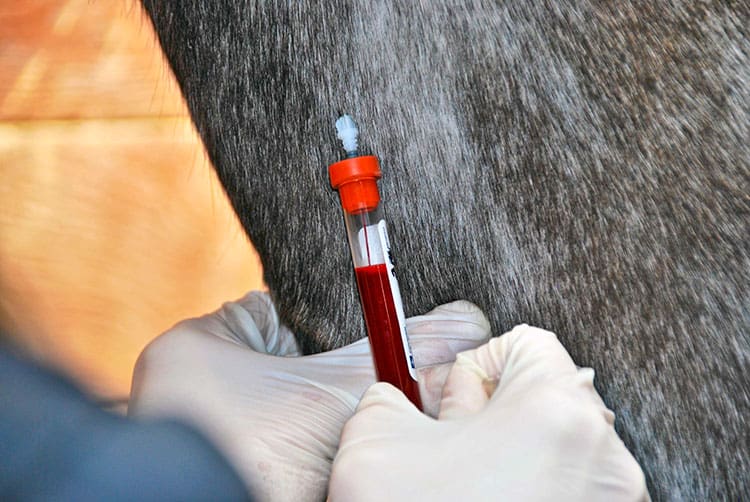Alberta Officials Enact EIA Quarantine at Animal Rescue

Officials strongly recommended improved biosecurity measures to the premises’ owners to help control the spread of EIA, thereby protecting the national herd. The CFIA investigation continues and the infected and exposed horses on the premises have been quarantined until all disease response measures—which include follow-up testing and euthanasia of horses that are confirmed positive—are complete. The CFIA might contact other premises trace-out activities.
Equine infectious anemia is a viral disease that attacks horses’ immune systems. The virus is transmitted through the exchange of body fluids from an infected to an uninfected animal, often by blood-feeding insects such as horseflies. It can also be transmitted through the use of blood-contaminated instruments or needles.
A Coggins test screens horses’ blood for antibodies that are indicative of the presence of the EIA virus. Most U.S. states require horses to have proof of a negative Coggins test to travel across state lines.
Once an animal is infected with EIA, it is infected for life and can be a reservoir for the spread of disease. Not all horses show signs of disease, but those that do can exhibit:
- Progressive condition loss;
- Muscle weakness;
- Poor stamina;
- Fever;
- Depression; and
- Anemia.
EIA has no vaccine and no cure. A horse diagnosed with the disease dies, is euthanized, or must be placed under extremely strict quarantine conditions (at least 200 yards away from unaffected equids) for the rest of his life.
Written by:
Edited Press Release
Related Articles
Stay on top of the most recent Horse Health news with















